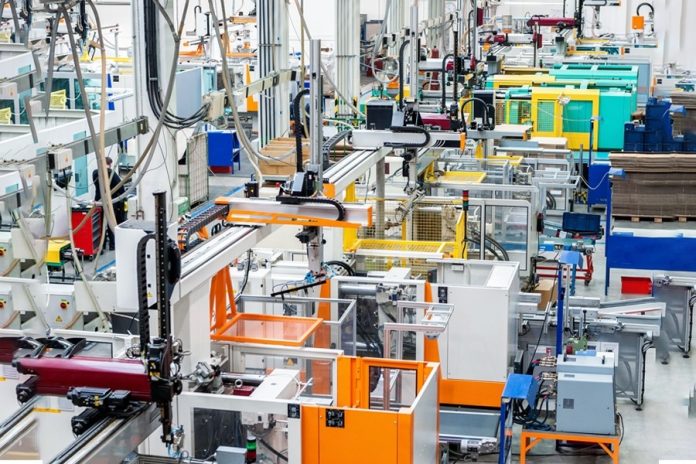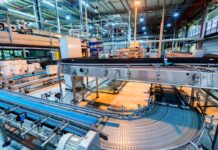
Zebra Technologies has released the results of a global study that analysed the trends and challenges shaping the future of industrial manufacturing.
The 2017 Asia Pacific Manufacturing Vision Study surveyed some 1,100 executives from automotive, high tech, food, beverage, tobacco and pharmaceutical companies, to predict how manufacturing will evolve over the next five years.
The results of the survey suggest that manufacturers will continue to adopt Industry 4.0 and the smart factory, allowing workers to use a combination of radio frequency identification (RFID), wearable technologies, automated systems and other emerging technologies to monitor the physical processes of the plant and make decentralised decisions.
According to the survey, the number of manufacturers supporting a fully connected factory would nearly triple by 2022, which means 46% of all respondents anticipate having the capability in five years’ time.
APAC manufacturers will lead the way in adopting smart solutions globally, with 77% of respondents expecting to collect data from production, supply chain, and workers in a holistic manner by 2020, compared to 46% doing so today.
“Forward-looking manufacturers are embracing a quality-minded philosophy to drive growth, throughput and profitability,” the survey has found.
“In a sign that improvements made by both suppliers and manufacturers will ultimately boost the quality of finished goods, fewer respondents say quality-related issues will be a top concern in the future. Today, 55% of manufacturers see quality as a top concern, but this falls to 35% in 2022.”
The survey also found that manufacturers expect to expand the level of technology use between now and 2022, specifically mobile technology (27% vs 72%), wearable technology (33% vs 65%), location tracking (38% vs 51%), and voice technology (45% vs 51%).
Results suggest that 42% of the manufacturers expect investments in visibility technology to spur growth, with 55% considering implementing real-time location systems (RTLS) and 48% planning to use RFID by 2022 to provide the much-needed transparency across their operations.
Additionally, 44% of respondents expect to enable Just-In-Time (JIT) notifications for their customers.
According to the survey findings, the request will increasingly come from the high-tech (48%), pharmaceutical (405), automotive (35%), and food & beverage (36%) industries.
“Manufacturers are entering a new era where there are increasing expectations of faster and higher quality production along with highly competitive margins. This trend is especially relevant for Asia Pacific – a region often regarded as the manufacturing hub of the world,” said yan Goh, Vice President and General Manager, Zebra Technologies, Asia Pacific.
“The Zebra APAC Manufacturing Vision Study shows that savvy manufacturers have started to invest in smart factory technologies to reap benefits such as enhanced productivity, increased visibility, and the ability to predict demands. As we move toward Industry 4.0, this trend will continue to expand and shape the industry in the coming years.”
Tom Christodoulou, Regional Director, Australia / New Zealand, said Zebra’s new APAC Manufacturing Vision Study gives a deep insight into the changes which the manufacturing industry in Australia and rest of APAC region are going through.
“As Australian manufacturers are progressively moving towards Industry 4.0, smart factories are forming the core of the revolution, where real-time communication between the supply chain and the production line enable a high-level of digitisation,” he said.
“Hence one of the key findings of the research is that almost half of the factories in the APAC region will be connected within five years; which will lead to much better-quality goods and unprecedented visibility accompanied with impressive cost efficiencies for Australian manufacturers.”




















